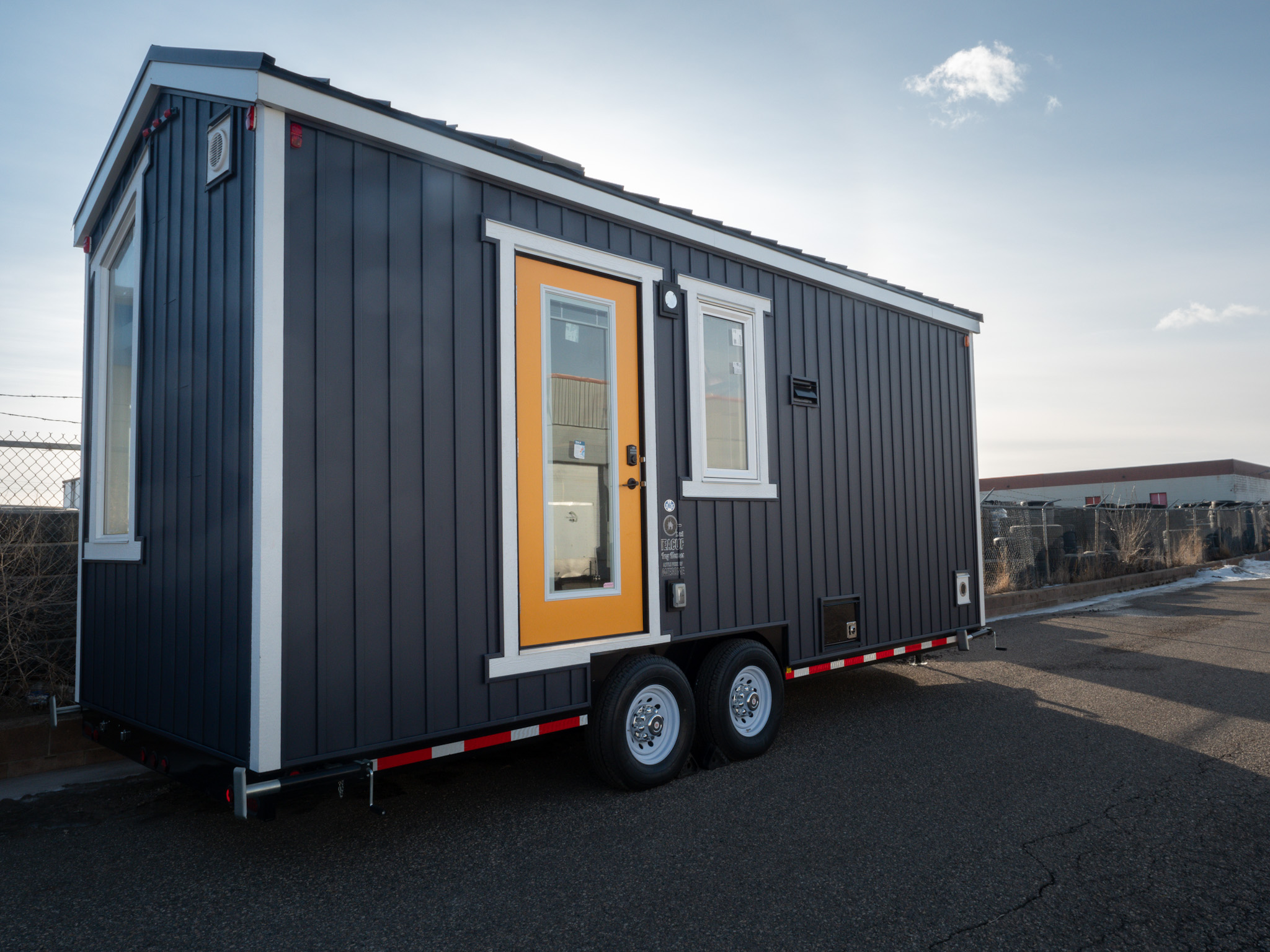Teacup Tiny Homes markets its houses to homeowners looking to down size, rather than first-time homeowners.
When it comes to finding a place to hang your hat, traditionally there are two options – rent or buy. One Lethbridge man is embracing a new option.
Michael Bartz, a Lethbridge College student life associate, has spent the past two years working on building himself a tiny home, with the goal of reducing his cost of living and avoiding debt.
“I think the house encompasses a lot of those ideas of community and sustainability. Worst case scenario, if I lost my job and all my money – I have my house, I paid cash for it… I could park in a Walmart parking lot and live for a while,” said Bartz.
His tiny home is on wheels, meaning he may run into problems with bylaws when searching for a place to park it. According to the City of Lethbridge, tiny homes that are not on a foundation are not suitable for permanent habitation. The alternative homes are legal if they are built on a foundation, connected to utilities and meet Alberta Building Code requirements.
“For me, because I know the risk that, yes, I could be asked to move and I can’t legally park there. I know that risk and I am doing that, in spite of [it],” he said.
Bartz said he likes the alternate lifestyle tiny homes provide and he believes having zones for them would not align with the movement and what it stands for.
Teacup Tiny Homes builds houses on wheels that are certified as recreational vehicles. Its goal is to diversify the housing market and give people the option to live smaller, according to owner, Jennifer McCarthy.
“If you don’t have a CSA certified or RVIA build or something like that, then typically you are not going to be allowed in any municipality, legally,” said McCarthy.
She said the City of Lethbridge has agreed to work with her business if one of her clients decides to park their tiny home in the city.
“It needs to be on a foundation, which we can do. It needs to be permanently hooked up to city services, which we can also do. If the services are there and it has to be zoned properly,” said McCarthy.
Avoiding debt is not his only motivation for owning a tiny house – Bartz said living in a tiny home is as much about the lifestyle as the financial benefits. A tiny home for Bartz means having the freedom to travel and still have a place to call home, which he feels is less stressful.
“Another part of it for me is developing community wherever I am. If I am parked in someone’s backyard, I get to know those people. It kind of forces you to develop that community. I don’t have a gym and a library or any of that stuff in my house, so I am forced to go to those places,” he said.
McCarthy, like Bartz, said one of the biggest factors in buying a tiny home is freedom, whether financial or the freedom to move around.
“I’d rather do something that’s amazing and different and challenging, instead of just following the status quo,” said Bartz.



